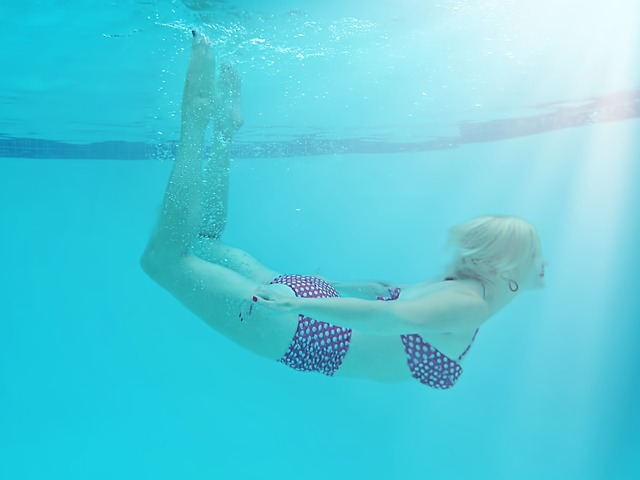When summer comes, we all look forward to being able to cool off from the torrid temperatures by putting on our bathing suits and jumping into the pool. Both adults and kids find it enjoyable and relaxing, but having a pool in your back yard can also be potentially hazardous, especially to children. Unfortunately, there are many stories this rime of year about accidents and tragedies that occur as a result of not putting adequate safety measures into place while doing pool activities.

Here are some things you need to consider to make certain conditions are at their safest for your littlest loved ones:
Put up a gate.
Small children are sometimes known to wander outside on their own and it can be tempting for them to go where the pool is, especially if you have toys sitting out in that area. Make sure you put a gate that is approximately 4 feet high or more between your house and the pool. You don’t want your tot to end up as a statistic. About 260 kids who are under the age of 5-years-old lose their lives in home pool related drownings annually. Putting up a gate is a good deterrent for curious children. The gate needs to have a lock that only you have the key to, so that your child can’t possibly be able to gain access to where the pool is, unless you are present.
Cover up
In addition to a gate, installing a power safety cover can aid in keeping children safe. The ones I’ve seen are made of mesh and held in place by metal anchors. Their chief purpose is to prevent drowning accidents. It’s best to have this in conjunction with the gate you put up, for the ultimate security. Along with the security, the covering up will help in group swimming lessons for the family members. It will save the time and money of the person.
Keep your child properly supervised when he or she is in your pool
When your child is in or near your backyard pool, you need to keep a careful watch out for him or her at all times. I’ve heard so many things in the news about parents who stepped away “for a minute”, to answer the telephone or to go turn the oven off, etc., and it was just enough time for their small child to fall into the pool and drown. Never take chances by walking off briefly or getting distracted. Put the answering machine on and don’t leave the stove or oven on when you are outside, so you can give your toddler your complete attention. Whoever is calling you on the ‘phone can call back, but you can never replace your child. If, for some reason, you have to be away for a slight amount of time, have a responsible adult supervise your child.
Don’t depend on “water wings”
You may think that putting “water wings” on your little ones will protect them from drowning, but, while it may keep them afloat, it can always get punctured, etc., so don’t let your guard down simply because you’ve put a floatation device on your child. It really shouldn’t be considered as a “safety” tool.
Be careful of pool slides
They look like lots of fun, but pool slides can do a lot of harm, if they are not properly used. Children should not slide head-first down them, as it could result in a serious injury that could lead to paralysis and the like. It’s probably better to just allow older children to use pool slides, since they are mature enough to remember the proper rules to avoid danger.

Learn CPR
If you don’t already know CPR, please learn. If an emergency situation happens, immediate intervention may be needed. It could be several minutes before an ambulance arrives on the scene, so time can be precious, in terms of getting the proper help. It can literally make the difference between saving and losing a life. Be sure that you have everything you need to be prepared for an emergency, as well. Always keep a cell ‘phone outside with you while you watch your children in the pool and have a life preserver close by. Consider yourself to be your child’s official “lifeguard” at home.
You may also like
-
How To Attract More Patients And Grow Your Practice? Let’s Check Out The Marketing Tips!
-
Tips in Capturing the Best Stunning Photos by your own
-
Here Are Four Platinum Safety Tips For Senior Travelers Who Are Traveling Alone
-
Specialists- Hydraulic And Pneumatic Systems
-
Sports Figures in 2020 Working With
